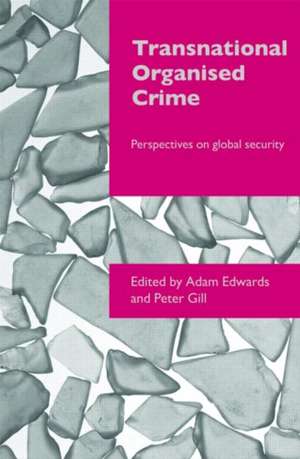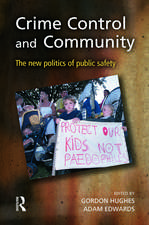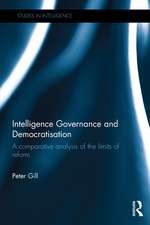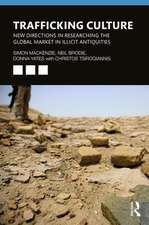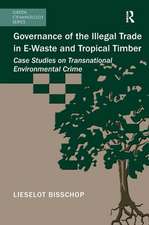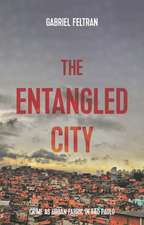Transnational Organised Crime: Perspectives on Global Security: Organizational Crime
Editat de Adam Edwards, Peter Gillen Limba Engleză Paperback – 29 iun 2006
| Toate formatele și edițiile | Preț | Express |
|---|---|---|
| Paperback (1) | 468.41 lei 6-8 săpt. | |
| Taylor & Francis – 29 iun 2006 | 468.41 lei 6-8 săpt. | |
| Hardback (1) | 1059.45 lei 6-8 săpt. | |
| Taylor & Francis – 12 iun 2003 | 1059.45 lei 6-8 săpt. |
Preț: 468.41 lei
Nou
Puncte Express: 703
Preț estimativ în valută:
89.63€ • 93.83$ • 74.16£
89.63€ • 93.83$ • 74.16£
Carte tipărită la comandă
Livrare economică 05-19 aprilie
Preluare comenzi: 021 569.72.76
Specificații
ISBN-13: 9780415403399
ISBN-10: 0415403391
Pagini: 304
Dimensiuni: 156 x 234 x 16 mm
Greutate: 0.43 kg
Ediția:1
Editura: Taylor & Francis
Colecția Routledge
Seria Organizational Crime
Locul publicării:Oxford, United Kingdom
ISBN-10: 0415403391
Pagini: 304
Dimensiuni: 156 x 234 x 16 mm
Greutate: 0.43 kg
Ediția:1
Editura: Taylor & Francis
Colecția Routledge
Seria Organizational Crime
Locul publicării:Oxford, United Kingdom
Public țintă
Postgraduate and UndergraduateCuprins
Part 1: Origins of the Concept 1. Transnational Organised Crime: The Global Reach of an American Concept 2. Europe's Response to Transnational Organised Crime 3. Global Law Enforcement as a Protection Racket: Some Sceptical Notes on Transnational Organised Crime as an Object of Global Governance Part 2: Measurements and Interpretations 4. Measuring Transnational Organised Crime: An Empirical Study of Existing Data Sets on TOC with Particular Reference to Intergovernmental Organisations 5. Classify, Report and Measure: The UK Organised Crime Notification Scheme 6. The Network Paradigm Applied to Criminal Organisations: Theoretical Nit-picking or a Relevant Doctrine for Investigators? Recent Developments in the Netherlands 7. Transnational Organised Crime: A Police Perspective Part 3: Case Studies 8. Bad Boys in the Baltics 9. Controlling Drug Trafficking in Central Europe: The Impact of EU Policies in the Czech Republic, Hungary and Lithuania 10. Recognising Organised Crime's Victims: The Case of Sex Trafficking in the EU Part 4: Current and Prospective Responses 11. The Legal Regulation of Transnational Organised Crime: Opportunites and Limitations 12. Countering the Chameleon Threat of Dirty Money: 'Hard' and 'Soft' Law in the Emergence of a Global Anti-money Laundering Regime 13. Criminal Asset Stripping: Confiscating the Proceeds of Crime in England and Wales 14. Proteiform Criminalities: the Formation of Organised Crime as Organisers' Responses to Developments in Four Fields of Control 15. Organised Crime and the 'Conjunction of Criminal Opportunity' Framework 16. After Transnational Organised Crime? The Politics of Public Safety
Recenzii
'A significant contribution in the field of criminology.' - Global Crime
Notă biografică
Adam Edwards is Senior Lecturer in the Department of Social Sciences at Nottingham Trent University.
Peter Gill is Reader in Politics and Security at the School of Social Science, Liverpool John Moores University.
Peter Gill is Reader in Politics and Security at the School of Social Science, Liverpool John Moores University.
Descriere
Considers the origins of transnational organised crime, how it has been defined and measured, governments' policy responses and its place on the policy agendas of the UN and EU in the wake of the 'war on terror'.
